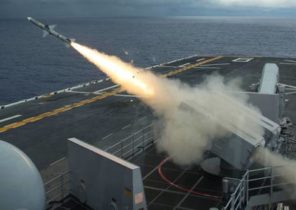
Two years after Congress rejected Federal projects to remedy the situation in the troubled schools, States for the most part develop only the most vague plans to deal with permanent failures in the education system. While only 16 States and the district of Columbia submitted proposals for the powers of the schools in the context of the 2015 year of the law called “Every student succeeds” (Every Student Succeeds Act). With rare exceptions the plans do not contain detailed recommendations on practical measures such as mass layoffs of teachers or conversion Charter schools that were once a standard element of school reform. Many people in the education system — from Directors in public schools to members of teachers ‘ unions — welcome this is based on the principle of non-interference trend.
Any with difficulties in school, in their opinion, is faced with unique circumstances and deserves a special solution formulated on the basis of the efforts of the local community rather than top-down directives, composed by bureaucrats who are very far away.
However, other people are concerned about the lack of clear plans. This, in their opinion, testifies to the low probability of significant changes in the schools, which are more in need. “We don’t know what to do with those schools that consistently show poor results. Nothing is being done consistently and in the right proportions, — said Michael Petrilli (Michael Petrilli), President of the conservative Institute named Thomas Fordham (Thomas B. Fordham Institute). — I suspect that most States are doing it without any enthusiasm”.
Delaware became the first state to have achieved the Federal government for approval its plan, although, according to independent experts, his proposal for the rehabilitation of the schools are vague and unlikely to lead to significant changes. The Minister of education Betsy DeVos (Betsy DeVos) has approved this plan. She hoped that it “will provide students, families and teachers in the state a solid Foundation for getting a great education.” DeVos and President of the trump are promoting the idea of an expanded local control in education that represents a departure from the position of their recent predecessors, represented both parties.
The Congress believed that he had found a solution to the problems of schools showing low performance when adopted in 2001 a law called “no child forgotten” (No Child Left Behind). This is supported by both parties, the law designed to deal with the fact that President George W. Bush called “the soft bigotry of low expectations”, imposed sanctions on schools that fail to improve the results of their work.
If in school for two years could not show the desired results, the students were allowed to transfer. After three years the school had to offer free tutoring. After four and five years of poor results it was proposed a set of measures, from change of program of study and termination of employees to transition to work in the format of a Charter school or transfer control to state governments.
Under the sanctions were not only schools with low scores, but schools that demonstrated overall good results, but had flaws to work with representatives of groups such as blacks, Hispanic, students with disabilities or students from low-income families.
Ten years after the introduction of this law, almost all agreed that it didn’t work. Half of the 100 thousand public schools have not reached the targets, but States spent all of their resources to those changes was needed the most. Often those schools which were found, did not reach the targets, were allowed to continue to work on.
Declaring that the nation is obliged to achieve the best results, President Barack Obama sent billions of dollars to make a difference in those 5% of schools that were found to be the worst. To receive this money, schools had to agree with the one promoted by the Obama administration four strategies to close, re-open as a Charter, to lay off employees or change school culture.
Despite some bright moments and if successful, a Federal study published this year shows that on average test results, the number of students who graduated from high school and enrolment in the universities received additional funds, the agencies did not differ from those schools that didn’t get it.
Similar failures led to the adoption of a bipartisan solution, proclaimed a new era of state and local control over education.
In accordance with the law, 2015 the States retain control over the testing from the third through the eighth grade and in high school. In addition, they must report how various groups of students cope with these tests. However, they appeared much more possibilities in order to decide almost all questions on the definition of successful schools and to act independently in relation to underachieving schools. This applies not only to schools with the lowest performance, but also institutions, where Laggards are the minority.
“States have a real opportunity to abandon the strategy of intervention in the style of “one size fits all,” said Chris Minnick (Minnich Chris), Executive Director of the Council of heads of education departments States (Chief State School Officers). — It is still too early to say whether we will be able to succeed.”
Human rights activists Express concern not only about the support which the States are planning to provide schools showing poor results. They are also concerned about how these schools will be identified. Liz king (Liz King), expert in educational policy Conference leadership on the rights of the citizen and the person (Leadership Conference on Civil and Human Rights) is concerned that States are developing such rating system that does not take into account the deficiencies in the schools. With such system, the average test scores are high, but some groups — such as students with disabilities or those who speak English — are far behind.
Of the 17 plans that States have provided to the Ministry of education, only two — according to the independent assessment contain adequate measures to help the low achieving schools. This study was conducted is located in Washington D.C. the consulting group Bellwether Education Partners in cooperation with the organization of the Collaborative for Student Success, acting in support of high standards and strict accountability.
Tennessee, which for the past seven years have made efforts to improve the performance of troubled schools, has proposed measures that takes into account how long and how effectively the school tried to cope with their problems. Caught in a very difficult position the school will be transferred to the state and will be managed by the operator of Charter schools, while less needy schools can become part of the County’s “innovation zones” that will allow them to increase the number of training hours more to pay teachers and to provide the Directors more independence in the efforts to improve the results. However, many other States are limited to merely talking about what they plan to assess existing needs in troubled schools and then make a plan to improve the situation. It is unclear what can be contained in such plans to improve and what to do if they don’t work.
“It is not much confidence,” said Dale Chu (Chu Dale), an expert in the field of education participating in independent study. According to him, the failures “can continue indefinitely”.
The state of Delaware wants to assess each school and make a specific plan for each of them. But it is not clear what will be contained in those plans. According to Susan Bunting (Bunting Susan), head of the Department of education of the state of Delaware, officials are aware of the fact that schools located in the Central part of the city of Wilmington, are facing challenges that are different from the problems of schools in poor rural areas.
“We know that each of our schools has its own special needs,” said Bunting. The group attracted from the experts involved in the assessment plans of the Ministry of education, said that the plans of the state of Delaware regarding troubled schools “probably will not be sufficient to significantly improve the performance of students.”
Three of the experts came to the conclusion that the plans of the state of Delaware regarding interventions in weak schools do not meet legal requirements. DeVos — she promised to respect the States — disagreed.
In the coming weeks it will assess the other 16 plans. The district plan calls to make to the project changes in case of chronic failures in the work of schools, and parents will be asked to assist in choosing a plan that best meets the needs of the school.
The remaining 35 States — including Maryland and Virginia, is expected to present their plans next month.
John king Jr., second Minister of education in
the Obama administration, who now heads the organization of the Education Trust, said that the question of measures against problematic schools deserves more attention from the States and the administration of the trump.
King hopes that States will turn to promising strategies for improving the performance of schools and will look into the possibility of expanding socioeconomic diversity. He also hopes that they will be able to benefit from the experience of those places which as a result of hard work succeeded in improving the performance of schools. As an example, king cited the city of Lawrence, Massachusetts, where schools have achieved outstanding success after six years ago they were transferred under the control of the state.
“Of course, I am concerned that there may be people that will use associated with local control rhetoric to justify its inaction in a troubled school or in those schools where there is a group of problem students, he said. The law rightly requires that these schools have taken appropriate action…control over the implementation by States of the provisions of this law and is still the responsibility of the Ministry of education”.






